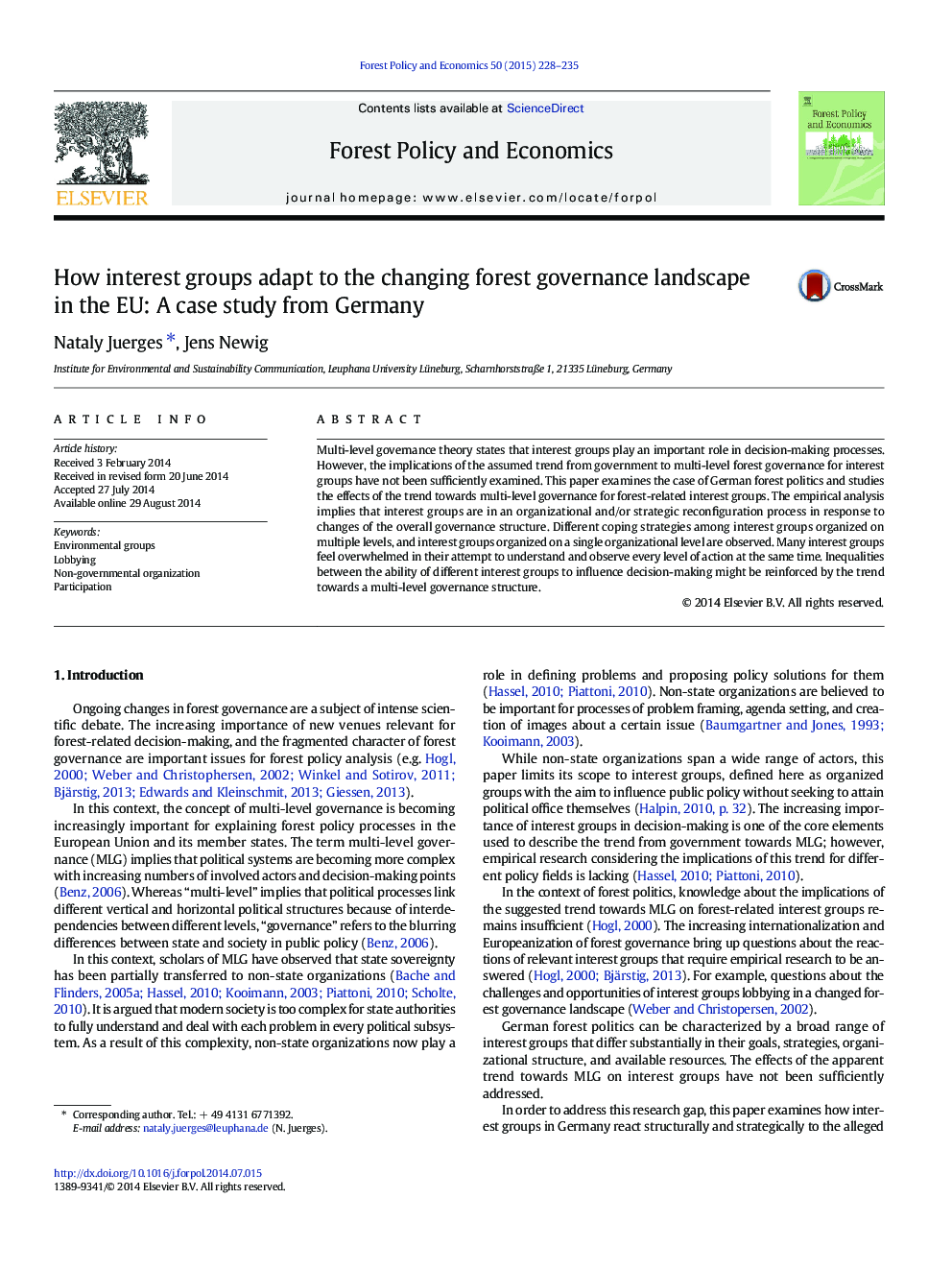| Article ID | Journal | Published Year | Pages | File Type |
|---|---|---|---|---|
| 6544947 | Forest Policy and Economics | 2015 | 8 Pages |
Abstract
Multi-level governance theory states that interest groups play an important role in decision-making processes. However, the implications of the assumed trend from government to multi-level forest governance for interest groups have not been sufficiently examined. This paper examines the case of German forest politics and studies the effects of the trend towards multi-level governance for forest-related interest groups. The empirical analysis implies that interest groups are in an organizational and/or strategic reconfiguration process in response to changes of the overall governance structure. Different coping strategies among interest groups organized on multiple levels, and interest groups organized on a single organizational level are observed. Many interest groups feel overwhelmed in their attempt to understand and observe every level of action at the same time. Inequalities between the ability of different interest groups to influence decision-making might be reinforced by the trend towards a multi-level governance structure.
Related Topics
Life Sciences
Agricultural and Biological Sciences
Forestry
Authors
Nataly Juerges, Jens Newig,
